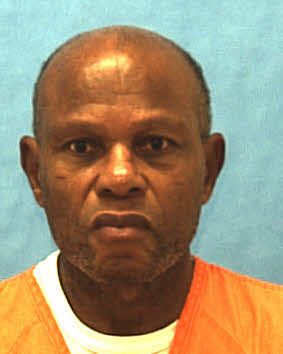
1951 - 2014
John Ruthell Henry
Summary
Name:
Years Active:
1975 - 1985Birth:
January 16, 1951Status:
ExecutedClass:
Serial KillerVictims:
3Method:
StabbingDeath:
June 18, 2014Nationality:
USA
1951 - 2014
John Ruthell Henry
Summary: Serial Killer
Name:
John Ruthell HenryStatus:
ExecutedVictims:
3Method:
StabbingNationality:
USABirth:
January 16, 1951Death:
June 18, 2014Years Active:
1975 - 1985bio
John Ruthell Henry was born on January 16, 1951, in Zephyrhills, Florida. He grew up in a troubled home. Information about his childhood is limited, but it is known that he faced difficulties during his early years. As he grew older, he showed signs of behavioral issues.
Henry had a troubled teenage life. He struggled with various problems, which led him into some legal trouble. He began to get into conflicts with the law, which impacted his future relationships and choices. By the time he became an adult, he had already experienced a tumultuous life filled with conflict.
In his early twenties, Henry married his first wife. This relationship also faced challenges. They had a volatile relationship that included many arguments. Unfortunately, their marriage ended tragically when Henry was convicted of her murder in 1975. He was sentenced to 15 years in prison.
Henry was eventually paroled after serving a portion of his sentence. After his release, he married again. This marriage was also difficult, and reports indicated that Henry and his second wife often had conflicts.
murder story
In August 1975, John Ruthell Henry stabbed his common-law wife, Patricia Roddy, during an argument while they were in a car. After the attack, he fled into a nearby wooded area and was arrested by Deputy Sheriff Fay Wilber. Medical tests showed that Roddy had been stabbed around 30 times. Henry pleaded no contest to second-degree murder and received a 15-year prison sentence.
After being paroled in January 1983, Henry married Suzanne Overstreet, who had a four-year-old son named Eugene "Buggy" Christian. Their marriage was troubled, and both were arrested for drug-related offenses. In December 1985, Henry went to Suzanne's apartment to ask about Christmas gifts for Christian. An argument ensued, and Henry later stated that they fought over a knife, leading him to stab Suzanne 13 times. He later wrapped her body in a rug and took Christian to a pasture near Thonotosassa, where he killed him.
Authorities found Suzanne's body the next day after she failed to go to work. Witnesses reported seeing Henry leave the apartment with Christian. He was later found at a motel with another woman. Detective Wilber, who had previously arrested Henry, took him into custody. During questioning, Henry admitted to killing both Suzanne and Christian and led the police to where he had discarded the boy's body.
Due to the killings taking place in different counties, Henry faced two trials. His attorneys tried to keep his confession from being used in court, but the judge allowed it. The defense argued Henry should not face the death penalty because of his mental health issues; however, experts disagreed, stating he could understand right from wrong. Ultimately, he was found guilty in both trials and sentenced to death.
Four years later, the Florida Supreme Court called for a retrial due to concerns about the previous jury's exposure to graphic evidence. In these retrials, Henry was once again convicted and sentenced to death.
Henry's attorneys continued to appeal the death sentences, claiming he was intellectually disabled. All of his appeals were denied. Governor Rick Scott signed his death warrant in 2014. On June 18, 2014, Henry was executed by lethal injection at Florida State Prison. He did not request a last meal and expressed remorse, stating he could not undo his actions and asked for forgiveness.